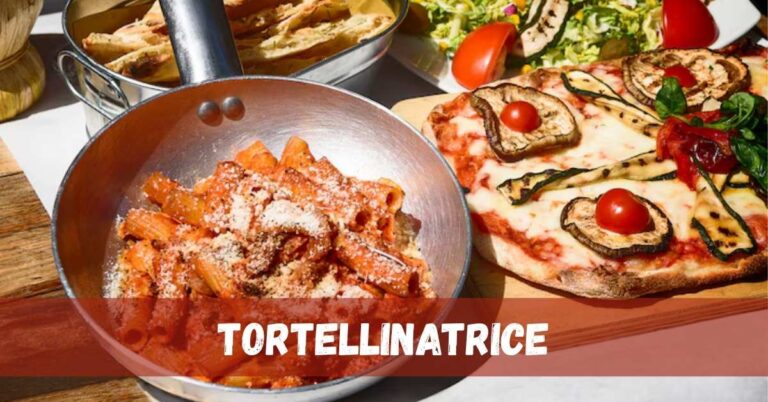Understanding Calamariere

The term “calamariere” may be unfamiliar to those who aren’t versed in specific Italian or maritime terminology, but it has an intriguing story to tell. This unique word evokes curiosity and invites exploration into a lesser-known area of cultural significance, craftsmanship, and cuisines around the world. To truly appreciate and understand what “calamariere” entails, we need to trace its roots, its various uses, and its role across different contexts.
The Historical Origins of Calamariere
“Calamariere” originates as a term that, in its most basic sense, connects to calamari. Calamari, the Italian word for squid, plays a starring role in Italian cuisine and holds a celebrated place in culinary traditions globally. However, the notion of it goes beyond just the seafood delicacy. Traditionally, a calamariere refers to a craftsman or tool related specifically to the preparation and handling of squid. Whether used for fishing purposes, culinary endeavors, or artisanal designs, the concept has its roots deeply planted in Mediterranean culture.
Historically, fishermen in Mediterranean regions often specialized as calamariere, perfecting techniques not only to catch squid but also to prepare it in ways that highlighted its culinary potential. Over centuries, their expertise became a defining element of regional identities, from the coasts of Italy to Greece and Spain. The word itself started to symbolize not just a role, but a deep connection to a lifestyle centered on the bounties of the sea.
You May Like : Exploring the Essence of Montemscopa
Calamariere in Modern-Day Fishing Practices
Today, It still finds relevance in fishing communities where squid catching is a practiced art. For many, fishing for squid involves intricate methods that have been honed over generations. Specialized tools and devices, often crafted by skilled hands, aid in making the process efficient and sustainable. These tools, often referred to as calamariere, enable fishermen to extract squid safely without harming marine ecosystems in the process.
This traditional expertise has even been carried forward into modern machinery, as the fishing industry continues to innovate. However, the craft-driven essence behind squid-catching survives, with it fishermen valuing the balance between maintaining traditions and adapting to newer technologies. Through these methods, calamariere also ensures that the ecological impact of large-scale squid fishing is kept in check.
Culinary Delights and the Role of Calamariere
The culinary world offers another fascinating dimension to the calamariere. Squid holds an important place in gastronomic cultures worldwide, appearing in everything from fine dining to street food. Preparing squid, however, is no easy feat. It requires skill, precision, and special tools to ensure the right texture and flavor are achieved.
A calamariere could be a skilled chef specifically focused on squid preparation or, alternatively, a set of traditional kitchen tools used for cleaning, slicing, and tenderizing squid. Calamari is extremely versatile, lending itself to various dishes such as fried calamari, squid ink pasta, and stuffed squid, to name just a few examples. Each of these dishes showcases different techniques and tools, many of which are central to the essence of the calamariere.

For instance, chefs specializing in calamari preparation often emphasize knife work, which is vital for slicing the squid cleanly without damaging its structure. The art of creating delicate and precise patterns on squid for visual as well as textural appeal also stems from the expertise rooted in the calamariere tradition.
Cultural Significance of Calamariere Communities
Beyond its artisanal and culinary relevance, the idea of calamariere also embodies a sense of community and heritage. Coastal towns that rely heavily on squid fishing often celebrate their identity through festivals, gatherings, and local cuisines centered around this resource. The calamariere, therefore, becomes a focal point of maritime culture, bringing people together to honor the traditions tied to the sea.
These celebrations are not merely about appreciating squid as an ingredient—they spotlight the effort, dedication, and knowledge that calamariere fishermen and chefs bring to their craft. Festivals often feature demonstrations of squid fishing or preparation techniques, allowing younger generations to inherit this wealth of expertise. The term calamariere is thus not just limited to professions or tools; it becomes a part of shared histories and communal pride.
Challenges Faced by Modern Calamariere
While there is no denying the charm and value that calamariere holds, modern practices face several challenges. Overfishing, climate change, and habitat destruction have started to impact squid populations in various parts of the world. These problems not only threaten marine ecosystems but also directly affect fishing communities that depend on squid as an economic resource.
It’s fishermen, particularly those who adhere to traditional methods, often find themselves competing with industrialized fishing vessels that harvest squid on a much larger scale. This dynamic creates discussions about sustainability and the importance of supporting small-scale fisheries that prioritize eco-friendly practices. Similarly, calamariere chefs and culinary experts must often work with fluctuating supply levels as they strive to maintain the integrity of their craft.
Efforts are underway in several regions to address these issues. Marine conservation initiatives, stricter fishing regulations, and sustainable aquaculture practices all aim to ensure that it’s traditions do not become casualties of environmental degradation. There is also growing consumer awareness about choosing seafood responsibly, providing an opportunity for individuals to support calamariere practices aligned with sustainability.
The Symbolic Meaning of Calamariere
Symbolically, It represents a way of life that blends pragmatism with artistry. Whether we view it through the lens of skilled craftsmanship, culinary expertise, or cultural heritage, the term represents the importance of preservation, skill-sharing, and respect for natural resources.
Interestingly, It also serves as a reminder of human ingenuity. The ability to turn something as seemingly ordinary as squid into a centerpiece of food, art, and economy showcases creativity that has endured through centuries. It’s about seeing potential in every element of our environment and finding ways to collaborate with nature rather than exploit it.
A Global Appeal
Though calamariere has its roots in Mediterranean culture, its spirit is universal. Today, culinary enthusiasts, marine biologists, and small-scale fishermen across the world resonate with its principles. Japanese and Korean cuisines, for example, feature squid prominently, contributing their own unique calamariere techniques.
This global appreciation fosters cross-cultural learning, allowing chefs and artisans to share methods, traditions, and recipes. It also opens up opportunities for storytelling that connects diverse audiences, encouraging a broader understanding of calamariere as something that transcends geographical boundaries.
Reviving and Celebrating
The future of calamariere depends on a conscious effort to keep its traditions alive while adapting to contemporary challenges. Young practitioners, whether they are fishermen, chefs, or toolmakers, must feel encouraged to engage with this field. Education plays a pivotal role in this revival, particularly when it comes to raising awareness about sustainable practices and the skills involved in it’s craftsmanship.
Organizations and governments can also play their part by recognizing the cultural and economic value calamariere brings to coastal societies. Through initiatives like funding traditional fishing practices or promoting squid-based dishes in culinary tourism, there is significant potential to breathe new life into this age-old tradition.
Ultimately, It is more than just a word—it’s an embodiment of persistence, creativity, and passion. By celebrating this tradition, we not only honor its historical roots but also find inspiration for sustainable, mindful futures. Whether we savor calamari at a seaside festival or admire the ingenuity of a calamariere craftsman at work, it reconnects us with the enduring bond between humanity and the ocean.
Read More : Everything You Need to Know About Invest1now.com Real Estate






